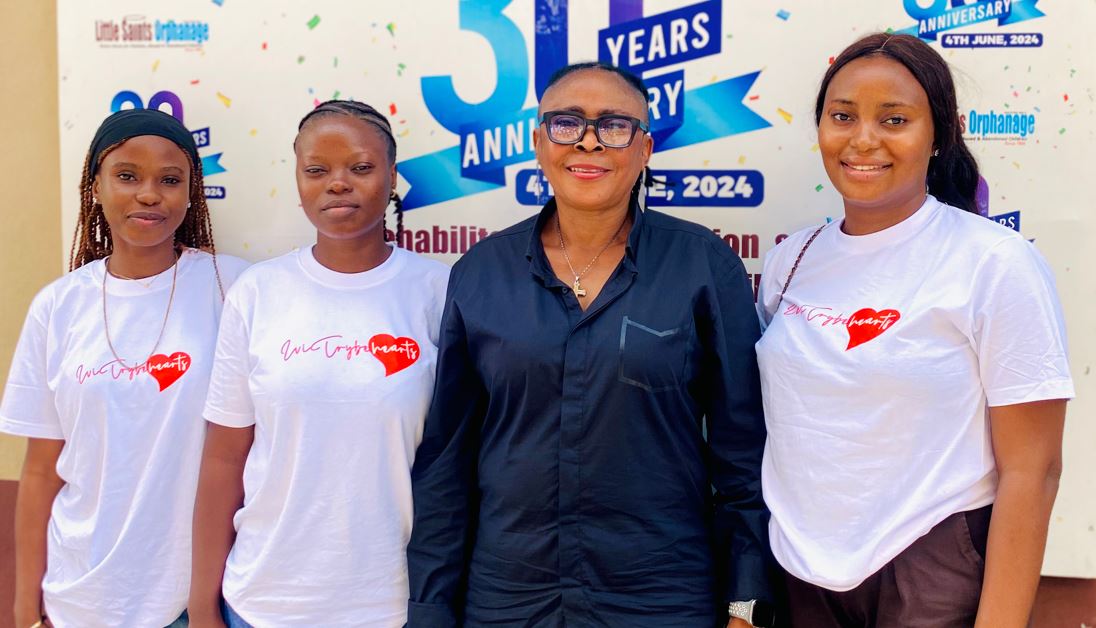News
Telecom Body Introduces New Global Guidelines to Protect Kids Online

The International Telecommunication Union (ITU) has launched its 2020 guidelines on Child Online Protection (COP), aimed at ensuring a safe and empowering online environment for children and young people.

The ITU says while the Internet and related digital technologies opened new ways for children to communicate, learn and play, they also exposed them to a range of content, contact and harmful conduct online.
The guidelines come as the world grapples with COVID-19, which has seen technology being placed at the centre of managing the spread of the virus, further exposing children and young people online.
According to the ITU, the new guidelines were designed from the ground up to reflect the significant shifts in the digital landscape in which children find themselves, such as the Internet of things, connected toys, online gaming, robotics, machine learning and artificial intelligence.
The guidelines consist of four parts tailored to key audiences: children, parents and educators, industry and policymakers.
The guidelines for children are available in a child-friendly format and consist of a story book for children under nine, a workbook for children aged nine to 11, and a social media campaign and microsite for children and young people aged 12 to 18.
“These resources help children learn how to manage risks online, while at the same time empowering them to exercise their rights online and engage in opportunities the Internet presents to them,” says the ITU.
The guidelines for parents and educators serve as a practical tool to help them effectively support children and young people’s interaction online, to sensitise families to the potential risks and threats, and help cultivate a healthy and empowering online environment at home and in the classroom.
The guidelines for industry aim at supporting industry players in the development of their internal COP policies, such as integrating child rights considerations into all appropriate corporate policies and management processes.
The ITU adds the guidelines help in “developing standard processes to handle child sexual abuse material; creating a safer and age-appropriate online environment; educating children, carers and educators about children’s safety and the responsible use of information and communication technologies; and promoting digital technology as a mode for increasing civic engagement”.
Policymakers are also included in the guidelines, as the ITU says they serve as a solid foundation on which to develop inclusive, multi-stakeholder national strategies, through open consultations and dialogues with children, to develop better-targeted measures and more efficient actions.
“ITU and its partners sought to create a highly usable, flexible and adaptable framework firmly based on international standards and shared goals, particularly the convention on the Rights of the Child and the United Nations Sustainable Development Goals.”
Commenting on the COP, ITU secretary-general Houlin Zhao says: “The question of how to ensure children’s online safety in the age of COVID-19 is now more pressing than ever before. ITU’s new guidelines on Child Online Protection are a very timely tool to safeguard the well-being, integrity and safety of our children, our most precious gift.”
Doreen Bogdan-Martin, director of the ITU telecommunication development bureau, says: “The new COP guidelines are designed to serve as a blueprint that can be adapted and used by different countries and stakeholders in a way that is consistent with national and local customs and laws.
“They can be considered as an initial step in engaging all relevant stakeholders – governments, the private sector, parents and teachers’ associations, and children themselves – in discussions around targeted measures and actions to create a safer online environment.”
News
OAU Taps Aderounmu, Tech Advocate as DVC Academics

Obafemi Awolowo University (OAU), Ile-Ife, has appointed Professor Adesola Aderounmu, renowned computer scientist and technology advocate, as its new Deputy Vice-Chancellor (Academics).

Professor Adesola Aderounmu
The decision, made by the university’s Senate, marks a strategic step towards aligning OAU’s academic vision with technological innovation and global best practices.
A distinguished scholar and leader in Computer Science and Engineering, Professor Aderounmu brings decades of experience to this pivotal role.
He has served as the Centre Lead for the African Centre of Excellence in Software Engineering and the Obafemi Awolowo University Knowledge Park (OAK-Park), where he has driven initiatives that advance technological innovation and academic excellence.
His leadership journey includes serving as Dean of the Faculty of Technology and Head of the Department of Computer Science, as well as President of the Nigeria Computer Society from 2015 to 2019. Under his stewardship, the Africa Centre of Excellence in ICT (OAK-Park) was established and has flourished, positioning OAU as a hub for digital transformation in Nigeria and across Africa.
“This is an opportunity to shape the future of education at OAU,” Professor Aderounmu stated. “I am committed to fostering an environment where ideas thrive.”
Professor Aderounmu’s appointment as DVC Academics carries significant implications for the information technology profession and industry in Nigeria and Africa.
His leadership is expected to further bridge the gap between academia and industry, aligning curriculum with emerging technological trends, and fostering research that directly addresses the needs of Nigeria’s evolving digital economy.
His commitment to developing high-level ICT talent will contribute to strengthening the nation’s capacity in critical areas such as artificial intelligence, cybersecurity, software engineering, and digital entrepreneurship.
As Nigeria and Africa continue to embrace digital transformation, this appointment signals a continued push for collaboration between universities and the technology industry, ensuring that graduates are equipped with globally relevant skills while advancing innovative research that supports the tech ecosystem.
This appointment recognises Professor Aderounmu’s unwavering commitment to research, excellence in education, and visionary leadership, and marks a significant milestone in the university’s ongoing mission to deliver impactful education and innovation for national and continental development.
News
IviTrybe Hearts Takes Kindness Drive to Little Saints Home

In a heartwarming demonstration of corporate social responsibility and community impact, IviTrybe Hearts, a key initiative driven by members of IviTrybe – a vibrant group of budding marketing communications specialists – visited the Little Saints Orphanage, Akowonjo branch.

The visit, part of IviTrybe’s ongoing commitment to societal betterment, was significantly supported by Pladis Foods Nigeria, which generously donated gift items and products.
IviTrybe is a social responsibility initiative of IVI PR, a dynamic public relations agency dedicated to not only elevating brands but also fostering positive societal impact. This initiative provides focused practical training covering brand strategy and public relations, directly addressing the critical issue of insufficiently skilled manpower within Nigeria’s Public Relations industry. Through the #IviTrybeHearts program, the group channels its growing expertise into meaningful community engagement.
During the visit, the IviTrybe Hearts team dedicated the day to creating a memorable and impactful experience for the children. Activities included extensive bonding and interaction sessions, where members engaged in games and companionship, fostering an atmosphere of joy and connection. Essential items were donated to support the orphanage’s daily needs, and motivational talks were delivered, inspiring the children with words of encouragement and hope for their futures.
Busari Toheeb Dolapo, IviTrybe Coordinator and spokesperson for the project, underscored the essence of the visit, stating, “For whom much is given, much is expected. We have been empowered through knowledge and mentorship at IVI PR, and it’s only right that we channel that privilege into making a difference. The smiles on the children’s faces today reminded us why giving back is non-negotiable.”
The management of Little Saints Orphanage expressed profound gratitude for the support and the tangible impact of the donations, emphasising how such gestures significantly improve the lives and spirits of the children under their care.
Through impactful initiatives like IviTrybe Hearts, IviTrybe continues to exemplify how youth-led action, empowered by practical training and a strong sense of responsibility, can effectively shape communities and enrich lives for the better.
News
INTERPOL Report Shows Cybercrime is West, East African Most Dominant Security Concern

Cybercrime has emerged as a dominant security concern across Africa, with more than 30 percent of all reported crimes in Western and Eastern regions linked to cyber activity, according to the newly released 2025 Africa Cyberthreat Assessment Report by INTERPOL.

The report, based on data from African member states and private sector partners, reveals that two-thirds of surveyed countries describe cybercrime as constituting a medium to high share of total criminal cases.
This highlights how cyber-enabled criminal activity is evolving rapidly across the continent. The report identified alarming spikes in scam attempts, with some countries witnessing a 3,000 percent increase in suspected scam notifications in the past year.
Neal Jetton, INTERPOL’s Cyber Crime Director, warned that the threat landscape is evolving faster than enforcement responses.
“This fourth edition of the INTERPOL African Cyber Threat Assessment provides a vital snapshot of the current situation, informed by operational intelligence, extensive law enforcement engagement, and strategic private-sector collaboration.
“It paints a clear picture of a threat landscape in flux, with emerging dangers like AI-driven fraud that demand urgent attention. No single agency or country can face these challenges alone,” Jetton stated.
In the past year, suspected scam notifications rose by up to 3,000 per cent in some African countries, according to data from Kaspersky, one of several private sector partners that work with INTERPOL’s cybercrime directorate
Online scams, particularly through phishing, are the most frequently reported cybercrimes across the continent. Ransomware attacks and Business Email Compromise (BEC) incidents are also increasing, particularly in Nigeria, Kenya, South Africa, and Egypt.
“Ransomware detections in Africa also rose in 2024, with South Africa and Egypt suffering the highest number, at 17,849 and 12,281 detections respectively, according to data from Trend Micro, followed by other highly digitised economies such as Nigeria (3,459) and Kenya (3,030),” it stated.
Incidents included attacks on critical infrastructure, such as a breach at Kenya’s Urban Roads Authority (KURA), and on government databases, such as hacks of Nigeria’s National Bureau of Statistics (NBS), the report stated.

 General News3 days ago
General News3 days agoNigeria’s BNPL Market is Projected to Value @ $2.6B by 2030

 Telecom3 days ago
Telecom3 days agoFree WiFi Meets Mega Entertainment at the Grand Opening of Solution Fun City

 E-Financial3 days ago
E-Financial3 days agoNIA Puts Industry Written Premium @ N1.5trn in 2024

 Telecom3 days ago
Telecom3 days agoInstagram Safety Tools Every Parent Should Know About

 Telecom3 days ago
Telecom3 days agoV-Malaysia 2025: QNET Strengthens Global Network with Landmark 5-Day Event

 E-Financial14 hours ago
E-Financial14 hours agoShareholders Oppose Transfer of Unclaimed Dividend to CBN

 News3 days ago
News3 days agoINTERPOL Report Shows Cybercrime is West, East African Most Dominant Security Concern

 E-Financial3 days ago
E-Financial3 days agoUN and Sterling One Foundation Lead Coalition Ahead of ASIS 2025




























